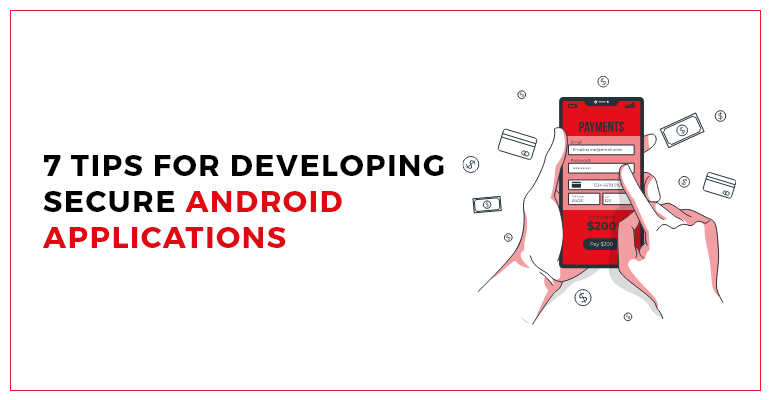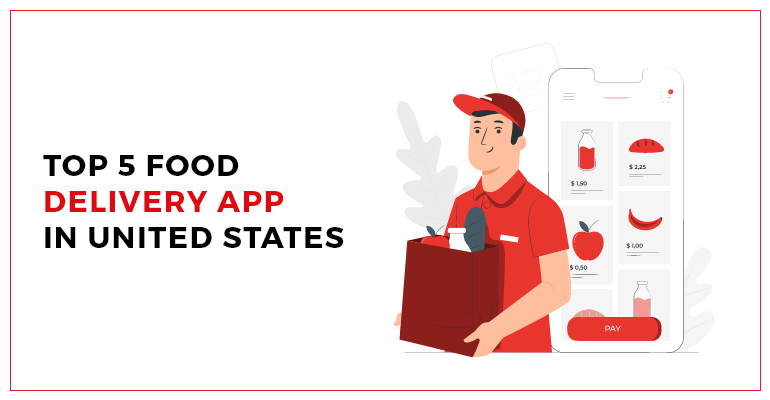7 TIPS FOR DEVELOPING SECURE ANDROID APPLICATIONS
October 17, 2022
Samantha Jones
In 2022, the United States witnessed 814 cases of data compromises. The impact was felt by 513 million individuals due to the leakage of confidential data. Thus, indicating the importance of app security.
The security of an app ensures that the data stored by the app remains protected. This data may include the information of the application users and confidential business data that should not be accessed by any third party. Through app security measures, the developers can build an app that cannot be hacked and misused.
WHY IS ANDROID APP SECURITY IMPORTANT?
Android and iOS are the two most dominating operating systems in the market. Nonetheless, iOS has had the upper hand due to its strict standards of security. Though android has also strengthened its security over time, it is still not as good as iOS.
Accordingly, to ensure that the app is safe, the android app development company needs to take measures, thus, enable the following:
- Build trust with customers, encouraging them to engage with the app.
- Prevent the app from being plagiarized.
- Protect the data from being accessed by an authorized party that may misuse the data to harm the customers or the business.
- Prevent frauds
- Secure transactions
The bottom line is that software security is vital to building customer trust and ensuring the success of your business. Remember, poor security protocols may lead to great financial losses. Therefore, developers must act responsibly while installing security measures in software – high-security standards would be a long-term investment for your business.
TIPS TO SECURE ANDROID APPS
Android app development may use the following tips to ensure that your software has hard-to-breach security standards:
1. SECURE APP PERMISSIONS
Your software may communicate with another software or feature within the device. For example, the Uber application uses the GPS system to figure out the location of the user. Such communication is essential for the smooth performance and functioning of the software. However, it’s your developer’s job to ensure the following:
- The user decides if they want to grant permission.
- Users understand why any permission is being taken and how access to other software will be used.
- Only absolutely necessary permissions are asked to prevent access to unnecessary data.
- For highly confidential data access, use authorization techniques such as passwords or pins.
2. DATA STORAGE
There are three ways of storing information:
- Internal Storage
- External Storage
- Content Providers
You need to ensure that your storage mechanisms are strong and safe, and you need to implement encryption techniques. In addition, you should not store the data for too long; delete unnecessary and outdated data.
You are recommended to do the following:
- Store the highly confidential data within the device’s internal storage
- Data within the external storage should not be too confidential because this information can be read and interpreted by anyone. Or you may use cryptographical verification to access information from external storage.
- Use authentication codes/ keys to ensure that only authorized parties access the sensitive information.
3. ENCRYPT THE DATA
Encrypt all the data; By encrypting the data, you make it accessible to only the user with the right encryption key. The encrypted data cannot be read by anyone who does not have the correct key.
4. AVOID EXCESSIVE DATA STORAGE
Do not ask the users to provide any information that may not be necessary for the application’s functionality. And if possible, try to make the app function without the confidential information of the user. However, if certain information is absolutely necessary, then only you should collect it. Nonetheless, you need to make sure you update your storage to remove unnecessary and outdated data.
Removing data would ensure that you are left with lesser data to deal with, so managing and protecting sensitive information will be more convenient.
5. SECURE THE CODE
Hackers may plagiarize your application if they manage to access the source code. Hence, an insecure code may negatively impact your business in the long term. This is the reason why you need to protect your code. You may do this through code obfuscation. This process enables you to convert your application’s code into an unreadable format. Thereby, you can prevent the code from being misused by anyone.
6. TEST THE APP
Test your software to ensure that the security protocols are functioning. Accordingly, you should look at the software from a user’s point of view to see how safe and secure the app appears. Moreover, you should investigate the loopholes in the software from an attacker’s point of view. You must immediately fix any vulnerabilities.
7. UPDATE THE SOFTWARE
you must ensure your app is updated and in line with the latest security protocols to stay ahead of the attacker and ensure your software is more advanced than the attacker. Moreover, your app should support the most updated android version to be able to provide high-end software protection.
CONCLUSION
Android app security is a major concern for application owners and users. Thereby, you need to prioritize imposing strict measures to protect your app from being hacked. Hence, you may prevent your software’s confidential information from getting breached, tampered with, or leaked. Remember, the inability to secure your android app will damage your business.
Therefore, you need to hire a professional android app development company to ensure that Google’s standards of security are followed, and the aforementioned tips are utilized within your software to develop software with high standards of data protection.





